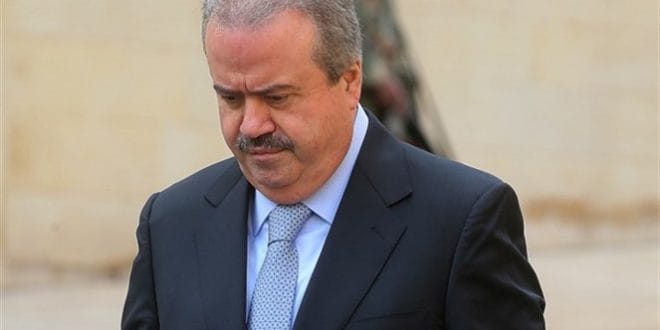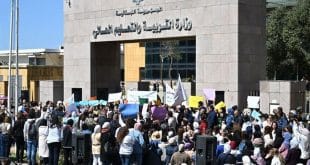جابر يكشف عن مفاوضات متقدمة مع البنك الدولي: إصلاحات مالية وصندوق لإعادة تأهيل البنى التحتية
التفاصيل:
أكد وزير المالية اللبناني ياسين جابر في تصريحات له اليوم الأربعاء، أن الحكومة اللبنانية تجري مفاوضات متقدمة مع البنك الدولي للحصول على مجموعة من القروض، بما في ذلك قرض خاص لإنشاء صندوق لإعادة تأهيل البنى التحتية المتضررة في مختلف مناطق لبنان. هذه الخطوة تأتي في ظل الأزمات الاقتصادية المتراكمة التي أثرت على معظم القطاعات الحيوية في البلاد.
تفاصيل القرض والصندوق: وأشار جابر إلى أن البنك الدولي قد خصص مبلغًا مبدئيًا قدره 250 مليون دولار كتمويل تأسيسي لهذا الصندوق، ولكن صرف الدعم سيكون مشروطًا بتنفيذ الإصلاحات المالية والإدارية المطلوبة. ويهدف ذلك إلى ضمان استخدام الأموال بشكل فعال وتنفيذ مشاريع بنية تحتية تكون فعّالة في تعزيز النمو الاقتصادي وإعادة الإعمار في لبنان.
حماية أموال المودعين: وفيما يتعلق بالملف المالي الأهم في لبنان، وهو أموال المودعين، كشف جابر أن صغار المودعين (أي الذين تقل ودائعهم عن 100 ألف دولار) يشكلون نحو 84% من إجمالي المودعين في لبنان، مع ما يعادل 20 مليار دولار من إجمالي ودائعهم.
وأضاف الوزير أن الحكومة تعمل على خطة لحماية صغار المودعين واستعادة ثقتهم في النظام المصرفي اللبناني، مشيرًا إلى أن المعالجة يجب أن تبدأ من هذه الفئة التي تمثل الشريحة الأكبر من اللبنانيين، والتي تأثرت بشكل مباشر من انهيار القطاع المصرفي منذ أكتوبر 2019.
خلفية الأزمة المالية: وتعد هذه التصريحات جزءًا من محاولات الحكومة اللبنانية المستمرة لمواجهة تداعيات الأزمة المالية التي بدأت قبل أكثر من أربع سنوات. أدى الانهيار المالي إلى تراجع حاد في احتياطات المصرف المركزي، وجمّدت معظم أموال المودعين، في وقت تتواصل فيه المفاوضات مع صندوق النقد الدولي دون التوصل إلى حلول واضحة حتى الآن. في الوقت نفسه، البنك الدولي مستمر في تقديم مشاريع دعم مشروطة بالإصلاحات التي لم تُنفَّذ بعد.
Minister Yassine Jaber Reveals Advanced Negotiations with the World Bank: Financial Reforms and Infrastructure Rehabilitation Fund
Details:
Lebanese Finance Minister Yassine Jaber confirmed in an interview today, Wednesday, that the Lebanese government is engaged in advanced negotiations with the World Bank to secure a series of loans, including one specifically aimed at establishing a fund for the rehabilitation of damaged infrastructure across various Lebanese regions. This initiative comes amidst the compounded crises that have affected most vital sectors in Lebanon.
Details of the Loan and Fund: Jaber mentioned that the World Bank has initially allocated USD 250 million for the foundation of this fund, but the disbursement of this support will be contingent upon the successful implementation of the required financial and administrative reforms. This condition ensures that the funds will be used effectively and that infrastructure projects will be impactful in fostering economic growth and reconstruction across Lebanon.
Protecting Depositors’ Funds: Concerning the highly sensitive financial issue of depositors’ funds, Jaber revealed that small depositors (those with deposits under USD 100,000) make up around 84% of the total depositors in Lebanon, with a total of USD 20 billion in their deposits.
The minister stressed that the government’s strategy focuses on protecting small depositors and restoring their trust in the Lebanese banking system. He emphasized that it is natural to begin addressing this issue with this group, which represents the largest segment of the Lebanese population and has been directly impacted by the collapse of the banking sector since October 2019.
Background on the Financial Crisis: These statements are part of the Lebanese government’s ongoing efforts to tackle the consequences of the financial collapse that began over four years ago. The crisis has resulted in a sharp decline in the central bank’s reserves, freezing most depositors’ funds, while negotiations with the International Monetary Fund (IMF) have failed to yield significant progress. At the same time, the World Bank continues to offer conditional support projects based on reforms that have yet to be implemented.
Translated by economyscopes team
المصدر: رصد موقع سكوبات عالمية
 سكوبات عالمية إقتصادية – EconomyScopes إجعل موقعنا خيارك ومصدرك الأنسب للأخبار الإقتصادية المحلية والعربية والعالمية على أنواعها بالإضافة الى نشر مجموعة لا بأس بها من فرص العمل في لبنان والشرق الأوسط والعالم
سكوبات عالمية إقتصادية – EconomyScopes إجعل موقعنا خيارك ومصدرك الأنسب للأخبار الإقتصادية المحلية والعربية والعالمية على أنواعها بالإضافة الى نشر مجموعة لا بأس بها من فرص العمل في لبنان والشرق الأوسط والعالم




